USC Football Offensive Preview
One of the best offenses in the nation led by the reigning Heisman winner is coming to Berkeley.
These two teams have played each other 108 times since 1915, and this classic in-state rivalry is coming to an end because of USC’s pursuit of the almighty dollar above all else. Sure, I’ve talked about Pac-12 saboteur USC President Carol Folt before, the one who reportedly sabotaged Pac-12 expansion plans right before jumping to the Big Ten. But did you know that USC is one of the biggest advocates against west coast schools joining the Big Ten conference? They were vocal (but non-voting) opponents of a Cal/Stanford move to the Big Ten, and they even tried to keep Oregon and UW from joining them. Never mind the fact that Oregon and Washington represent the Pac-12’s best chance at national postseason relevance. USC wants to be a big fish in a small pond, and is vehemently trying to pull the ladder up behind them, and they don’t care who they step on to do it (except for UCLA, who they don’t respect enough to disrespect).
As someone literate enough to read an article, you probably don’t need me to explain all the ways USC sucks. It’s not a surprise to you that USC values money above all else, and it doesn’t matter to them if they need to lie, cheat, or steal to get it. They’re the f—ing worst. I called this a rivalry, but Cal fans know that USC is the enemy.
For reasons unknown to me, Lincoln Riley’s name is being floated for NFL jobs (although perhaps it’s being floated by Riley’s camp).
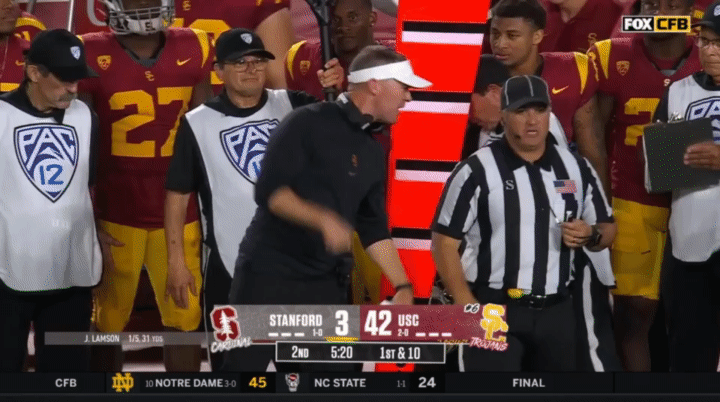
USC is basically known for never getting any favoritism for the refs, so it’s important to tear into them when a call doesn’t go your way (in the above case, it was disconcerting signals to cause a false start by the opponent, a 5 yard penalty). Surely refs enjoy this and will definitely not let their personal grudge against you get in the way of their jobs.
Of course, good things don’t always happen to good people, and so USC will be making more TV money in a new conference after years of being a drag on the conference ever since Pete Carroll left the team in 2009, due to the oncoming sanctions he probably knew were coming (and perhaps this also explains why Lincoln Riley is sending out NFL feelers). The willingness to cheat and then jump ship to escape any responsibility or punishment would show that Lincoln Riley truly embraces the USC ethos.
But anyway, I’m sure this game won’t be the last time we’ll see USC villainy. So let’s take a closer look at the players.
Quarterback
USC is led by the reigning Heisman winner, Caleb Williams. As USC has struggled against ASU, Colorado, and Arizona, before dropping games to Notre Dame and Utah, it has somehow become very popular to blame the quarterback in national media narratives. So now I’m in the weird position of trying to convince you that no, the reigning Heisman winner and likely #1 NFL Draft pick is actually really good. USC is a flawed team (mainly on defense), but the weird anti-Caleb Williams stories recently make no sense. ‘“Caleb Williams wants equity in an NFL team,” says unnamed sources close to Caleb Williams’s circle.’ Come on and do better, national media. Part of me thinks it’s an early attempt at either driving down his draft stock or generating nonsensical controversy around the #1 pick (over UNC QB Drake Maye), similar to the “how is Jared Goff going to play in the NFL with small hands” where “small hands” in this case means “small for an NFL QB, but still much bigger than normal people hands”. So now people are hyper-focusing on Williams’s flaws as a quarterback: he tries too hard to force plays, and he relies on his athleticism to avoid the pass rush (which typically doesn’t work nearly as well in the NFL, cf. Johnny Manziel). With the way the USC defense has struggled this year, it really shouldn’t surprise anyone that Williams has felt the need to force plays, i.e. “always looking to hit a homerun.” If he doesn’t hit a homerun, he knows the USC defense is about to give up another one, so he has to do something. But really, I don’t know what else negative you can say about him, and hence the weird personal attacks on his character coming out of nowhere.
Simply put, Caleb Williams is a phenomenal talent, and a true dual-threat quarterback: he can make all the NFL throws, and he can make ridiculously athletic game-breaking plays on his feet.
So let’s start with the obvious. He has a big arm, and he loves to take shots deep down the field:
One limiting factor here has been his receivers not being able to get open down the field (the way 1st round NFL Draft pick and now-Vikings receiver Jordan Addison did last year). Williams will still throw the deep ball, but he’s now trying to hit a much smaller window.
One of Williams’s biggest strengths is his ability to make things happen off-schedule. If a quarterback fumbles the ball, they often jump on it for a loss, try to throw it away, or maybe run it themselves. Not Williams though, he keeps his eyes deep down the field and launches it anyway:
Here’s a better view of that play:
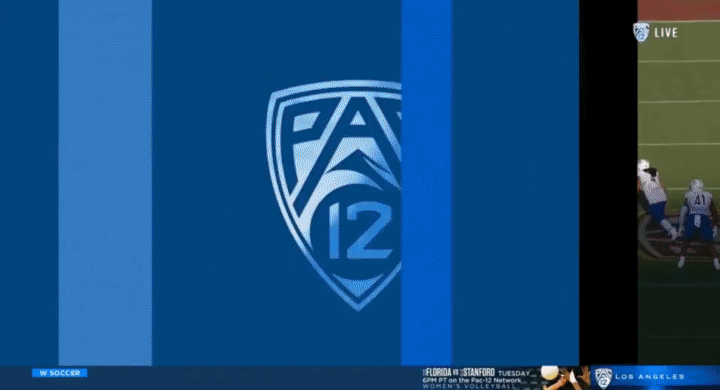
The USC offense has not been nearly as creative at scheming receivers open this year (perhaps Lincoln Riley is too busy polishing his resume for NFL teams), and what will often happen is that Williams will sit in the pocket forever, and wait for someone to get open on the scramble drill:
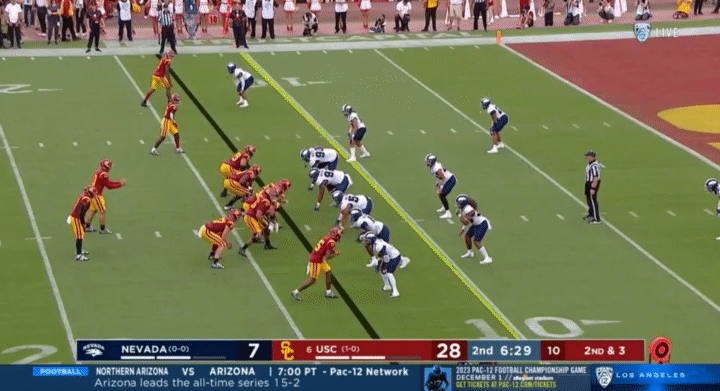
USC has a great offensive line, but they can’t be expected to hold up forever. No matter, Williams is super elusive in the pocket and is very tough to bring down. Notre Dame’s defense took advantage of these tendencies and gave Caleb the worst game of his college career (23/37 199 yards, 1 TD/3 INT). They were able to do so because Notre Dame has an excellent defensive line (Cal fans may remember 2022), preventing Williams from sitting in the pocket all day, and made Williams force a number of bad throws, desperate to make something happen:
Prior to all the weird Caleb Williams hate, he was drawing Patrick Mahomes comparisons (cough) for his ability to make plays happen off-schedule and do nifty little things like this:
Williams will run on designed quarterback runs, on zone read/RPO plays, and thus must always be accounted for in the run game:
Caleb Williams runs tough too:
The following play actually looks like a good job on defense by ASU (they had defenders ready for both the QB and RB), but Williams athleticism is just too much, and he somehow turns it into a positive play and a touchdown anyway:
And here’s another example showing what I mean when I say that Caleb Williams is a tough runner:
And Caleb rarely gets any credit for this, but he will legitimately go looking for people to hit as a blocker on run plays:
The following play was the game-winner in triple overtime against Arizona, and like a lot of USC plays this year, I am not really sure how it was supposed to work beyond “just give Caleb the ball and let him do something” and yet…. it worked:
It seems unlikely that Cal will be able to do what Notre Dame did (unless Cal wakes up with a top-5 defense in the country overnight), and so the focus should probably be around stopping the run game and locking up receivers, because Caleb Williams is going to make plays regardless, so try to limit the damage he can do.
Running back
Although you might expect USC to be a very pass-heavy team with the reigning Heisman winner, they actually run the ball roughly 45% of the time. In addition to keeping the offense balanced, this run/pass split can be partially attributed to the light boxes that the USC run game often faces (because teams are so worried about Caleb Williams).
MarShawn Lloyd (not to be confused with you-know-who), a South Carolina transfer, is a well-rounded running back an a good complement to Caleb Williams in the backfield. He’s quick with good size, jump-cut ability, and straight-line speed, and he’s also a pass-catching threat out of the backfield (which is increasingly important in modern offenses). Here he shows his straight-line speed and his ability to find a crease in the defense to get to the endzone:
Here’s another good example of that speed and cutting ability:
Lloyd is a patient runner who does a good job of letting his blocks develop, and USC does a good job of clearing him a path:
In fact, a lot of his runs look like this. A light box, a missed tackle, and boom, a big run:
Here Lloyd does a good job of punishing defenders who take a poor angle on him:
Lloyd isn’t the most elusive in space, typically opting for contact and to run through defenders. He runs with a low center of gravity with allows him to break a lot of ankle tackles:
While a lot of Lloyd runs look to be the way USC probably drew them up, he has shown some ability to improvise against bad defenses:
Behind Lloyd is the Stanford transfer Austin Jones, another pass-catching threat out of the backfield. Jones probably has a bit more speed and runs a bit lighter than Lloyd, making them a good 1-2 punch together.
If we see more than the two running backs above then it probably means that Cal is in for a long night (or a USC player was injured), but behind Lloyd and Jones is the TCU transfer, Darwin Barlow.
Barlow is another speedy back who has shown some impressive balance:
Finally, there’s the talented freshman Quinten Joyner, another speedy and elusive back:
It will be important for Cal to make tackles in the open field and prevent USC from gaining too much on the ground, as Cal will likely be devoting most of their defensive focus to the USC passing game. Having to devote defenders to stop the USC run game spells trouble.
Receivers
The receiving corps for USC is once again loaded with talent, but they have surprisingly been the biggest group of underperformers for the offense.
Their best receiver is Brenden Rice, son of the legendary Jerry Rice. I was a big fan of his when he was a freshman at Colorado, and he has really grown into his role and has shown NFL talent as a receiver.
Rice has impressive speed, which makes him a viable deep threat option, and Caleb Williams loves to launch it deep:
Rice has reliable hands, does a great job of adjusting to the throw, and shows good after-the-catch ability.
Rice shows great body control and an ability to make contested catches:
Rice is not known to be the most physical receiver, but he does doe a good job of being elusive and creating yards after the catch:
Caleb Williams’s other top target is a bit under the radar (at least relative to his 5-star/NFL pedigree teammates), but Tahj Washington has been quietly having a very productive season. He’s a 3-star transfer from Memphis, but while other USC receivers have struggled, it has been Washington that has stepped up in their place as a fast, reliable receiver with good hands.
And while Tahj Washington is an undersized receiver, what he lacks in size he makes up for in speed:
Tahj Washington has taken the starting slot receiver job from Mario Williams (who I still see every day on a giant billboard in downtown LA on my drive to work). Mario Williams had a solid year last year, but he’s struggled to get separation and had some issues with drops this year, and it seems like Caleb Williams has lost some faith in him.
Here’s a clip of Mario Williams from last year, because I have zero highlights of him this year:
The other slot receiver is true freshman Zachariah Branch, a 5-star recruit and the #1 ranked WR from the class of 2023. Branch is incredibly fast and explosive, and has shown a lot of promise already (which you’ll see more of in the special teams section below). Branch is a natural playmaker, and USC will try to feed him the ball in space or in the run game (e.g. on a reverse), because he can make plays happen:
WR Zachariah Branch hasn’t been too heavily involved involved in the passing game yet, but he has shown an ability to get separation on his routes (something that’s been lacking this year from USC receivers not named Brenden Rice):
Now at USC is the previously very productive Arizona receiver Dorian Singer. Singer put up over 1000 yards receiving last year at Arizona, but through 7 games so far at USC, he has just 214 receiving yards as a starter (although he didn’t start in their last game against Utah). At Arizona, Singer showed an ability to get open and make catches with strong hands. At USC, he’s shown a bit of that, but he has struggled gaining separation:
He has shown flashes of that catching ability though, such as the beautiful catch in an early-season game against Nevada:
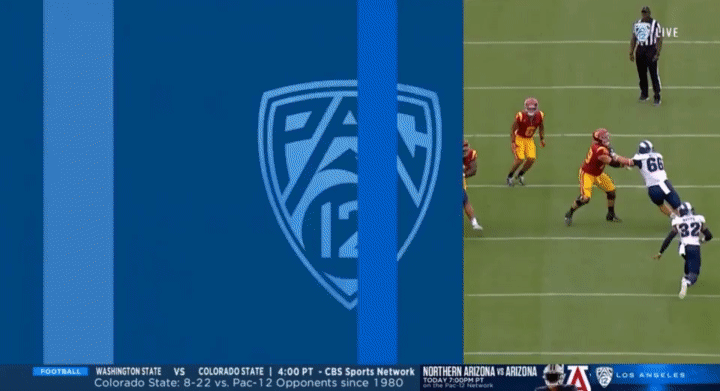
The receiver who took Singer’s starting job against Utah was Michael Jackson III. In a year where some highly-touted ($$$) transfers have struggled, it’s the backups who have shined the most for USC. Jackson is a good route-runner, and has been reliable catching the ball, which is something USC needs:
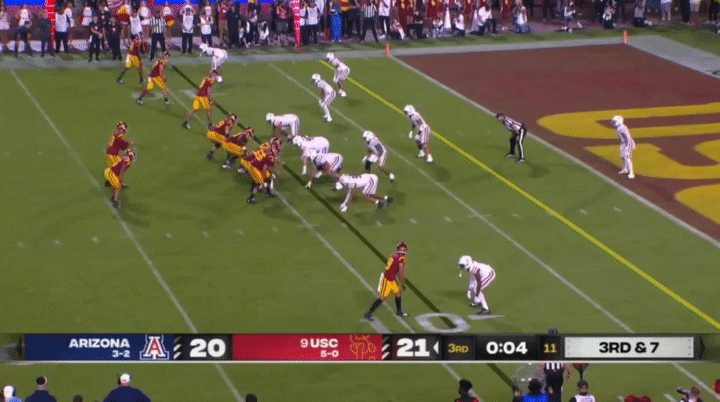
Lastly, the tight end Lake McRee is often used on underneath routes, but he’s also a decent receiver in his own right:
Although the USC receivers have been the offense’s biggest underperformers (and in my view, one of the reasons Caleb Williams is getting an absurd amount of undue hate), they’re still a group loaded with talent, as evidenced by the backups that have stepped up into starting roles over the transfers.
Special teams
With as many explosive athletes as USC has, it’s probably no surprise that USC has been dangerous on special teams. This has been where WR Zachariah Branch has really shined.
He’s dangerous on kickoffs:
And he’s dangerous on punt returns. Just look at him shifting into a higher gear than everyone else on the field:
The high-powered USC offense is usually scoring touchdowns, so there hasn’t been a lot of field goal attempts. This one would have been a game-winner against Arizona in regulation:
Suffice to say, it’s more of a boom-or-bust offense for USC.
Conclusion
USC has one of the best offenses is the conference (USC, Oregon, and UW are all top 10 in the FBS), and the #1 scoring offense in the country. They’re going to score a lot of points. Cal will need to limit the damage USC does on offense, and capitalize against a bad USC defense. Fernando Mendoza will be under a lot of pressure from the defensive line, but if he can get the ball out and make good decisions, he should be able to pick apart the USC secondary. Cal is not expected to win this one, but they opened as just 7-point underdogs, likely because of how poorly USC has performed against the spread this year (21.5-point favorites to Colorado but won by 7, 20.5-point favorites to Arizona but won by 2, and 2.5-point underdogs to Notre Dame but lost by 28).
In other words, USC has been a disappointment this year, and I hope they remain a disappointment in the upcoming game and in their future conference. After all, being a huge disappointment to everyone around them is what USC does best.
Go Bears.


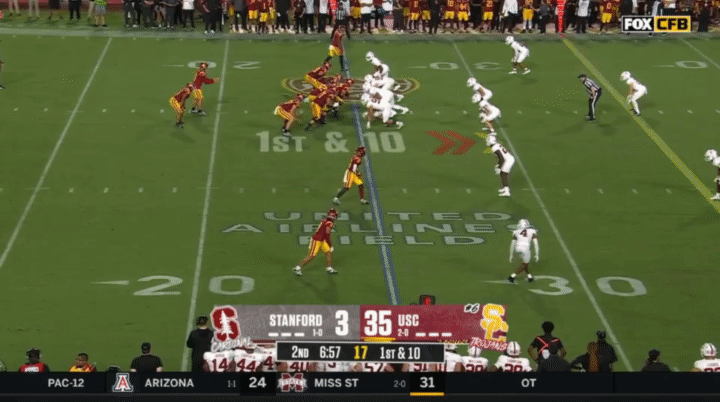
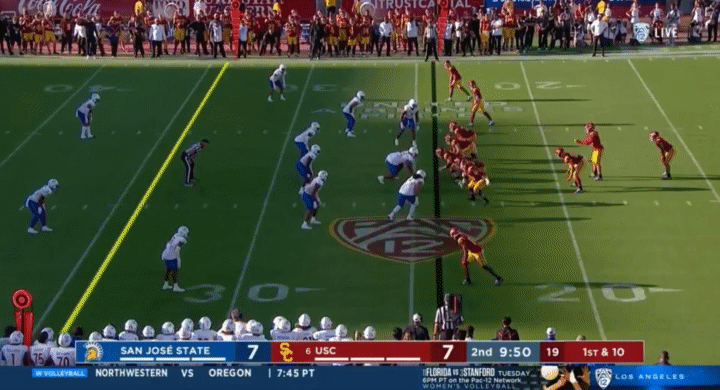
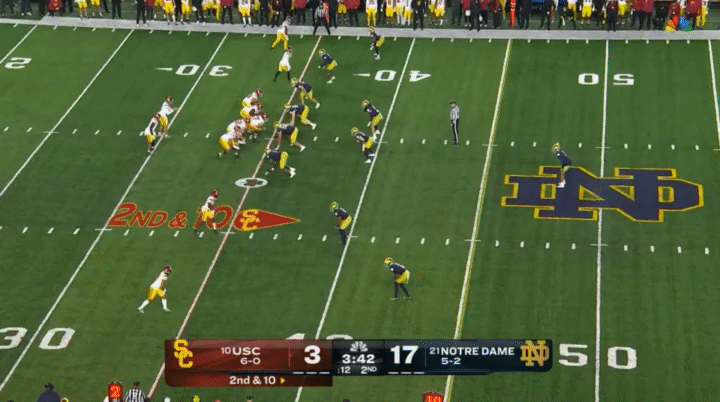
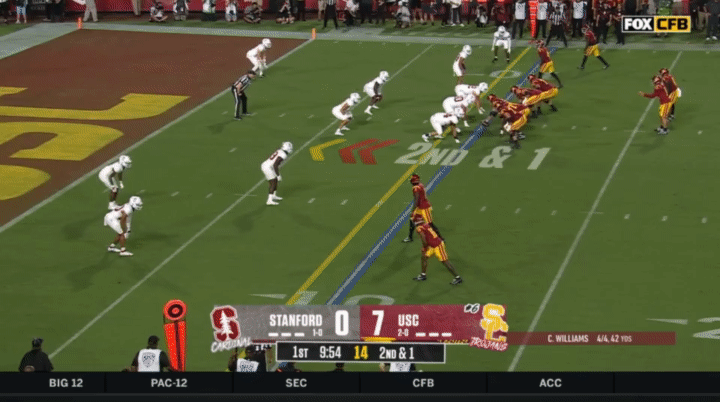
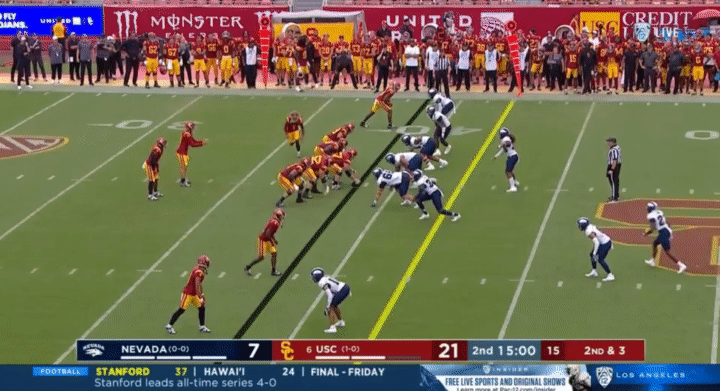
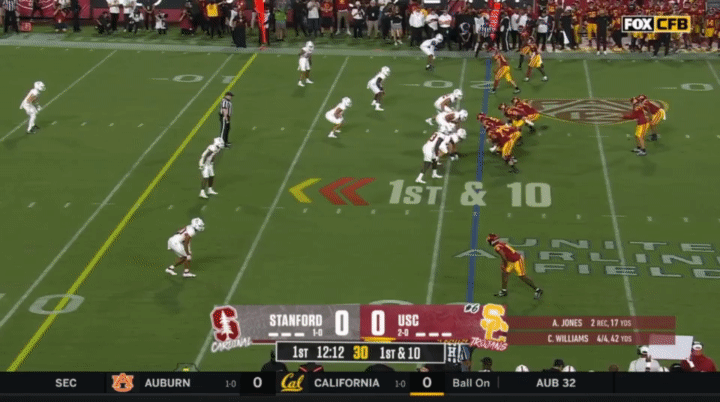
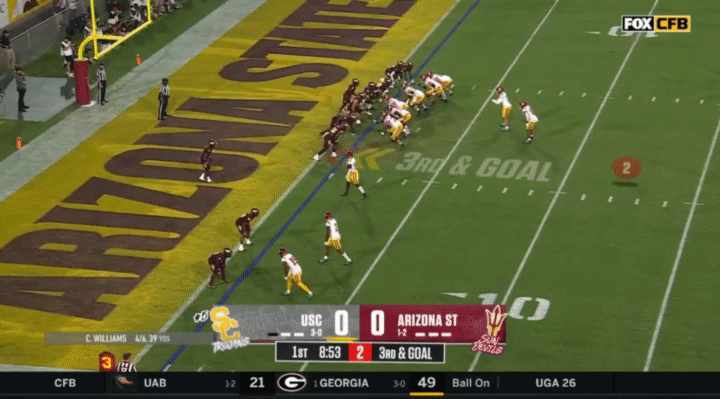
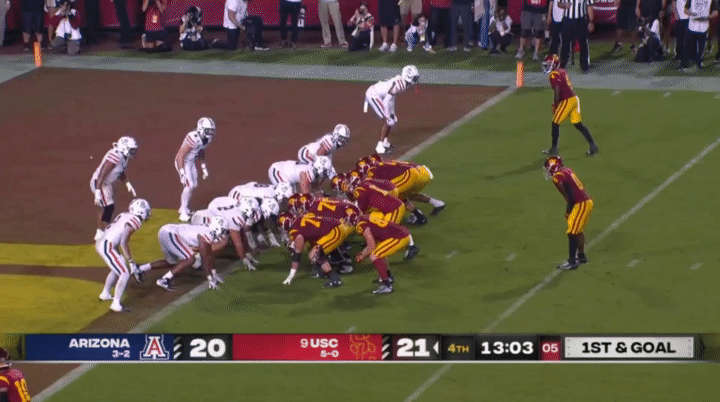
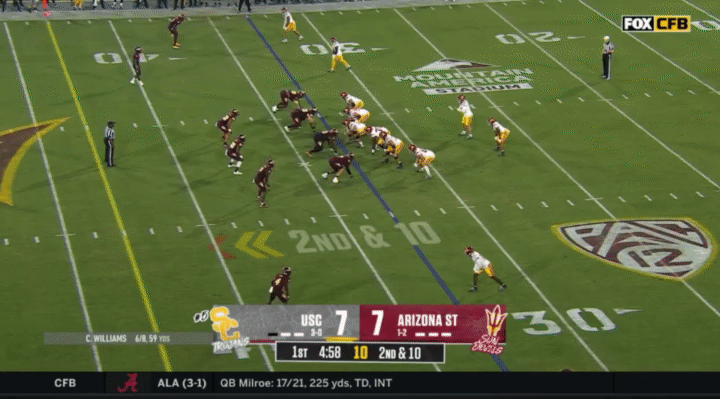
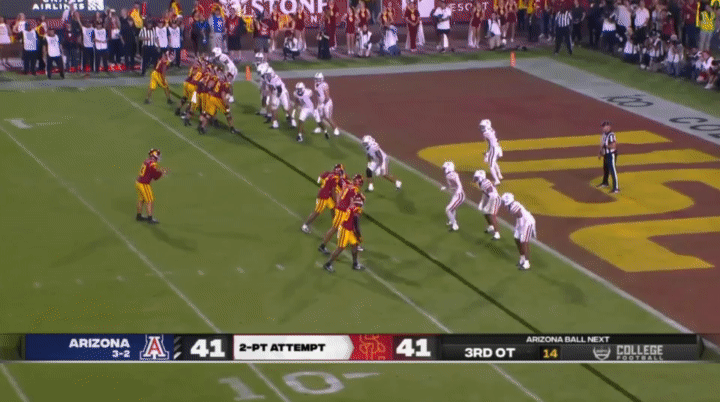
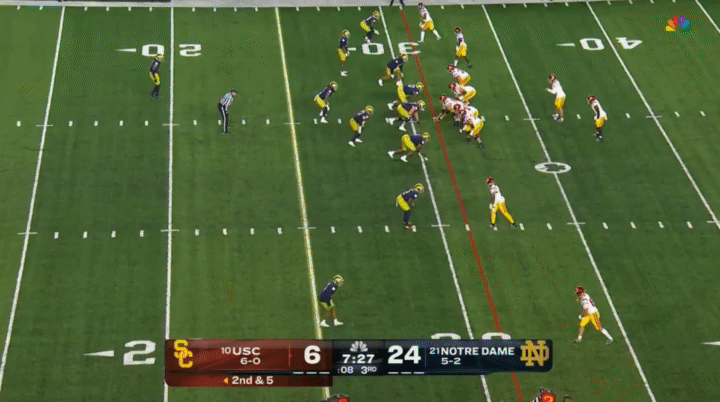
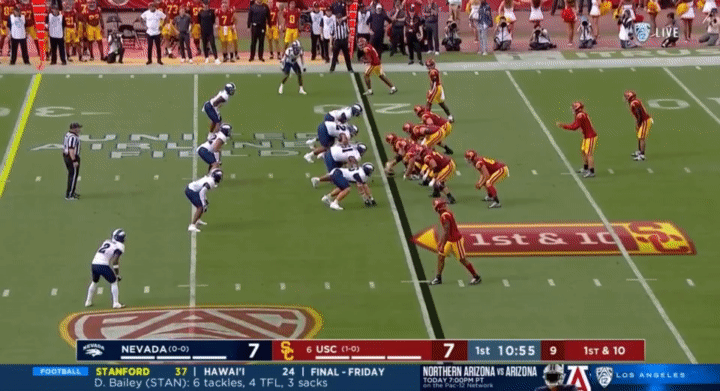
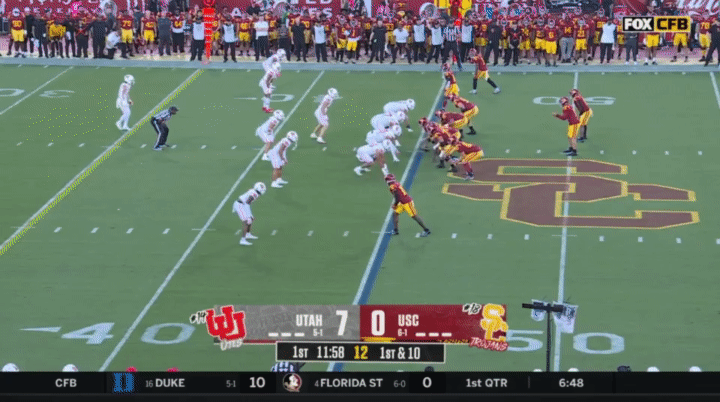
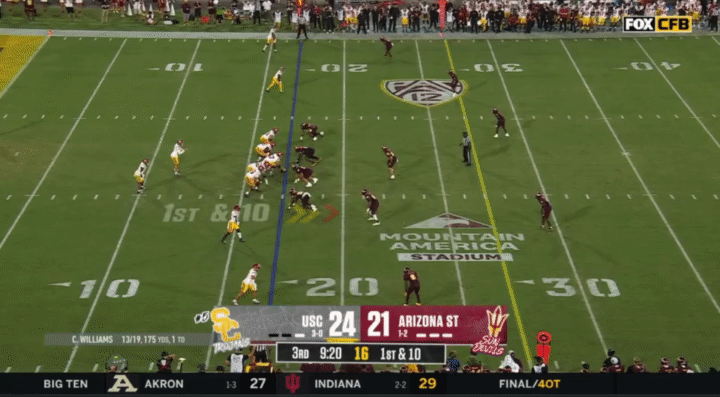
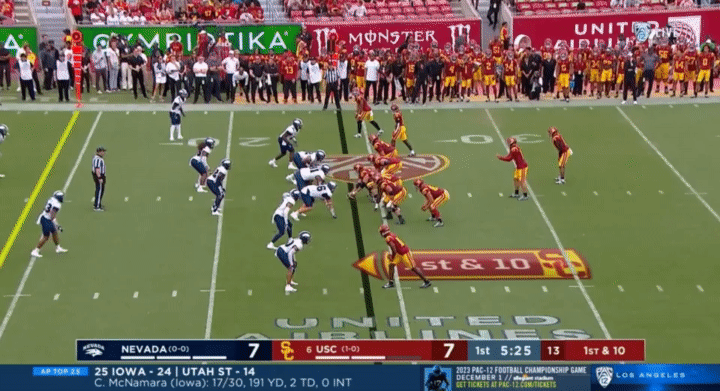
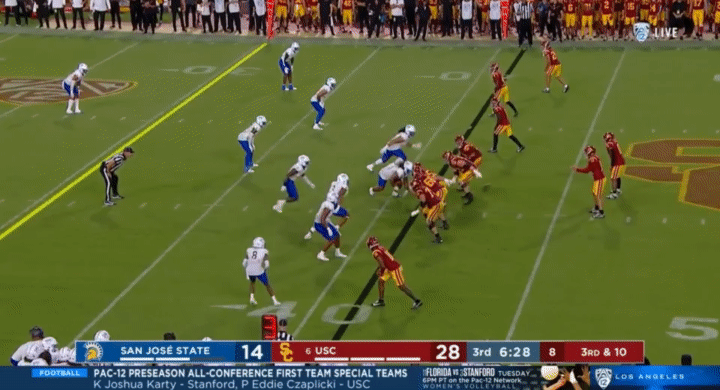
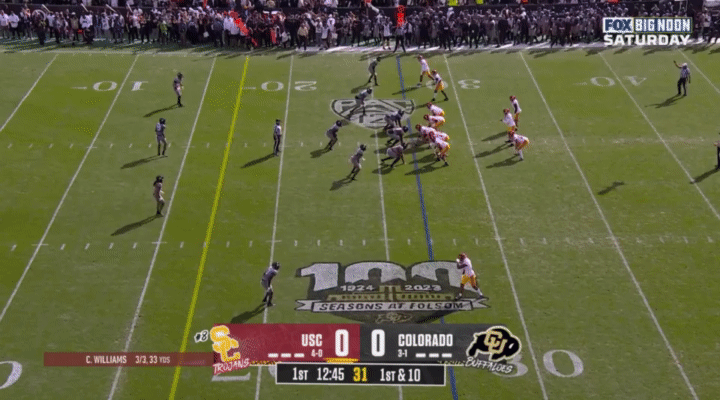
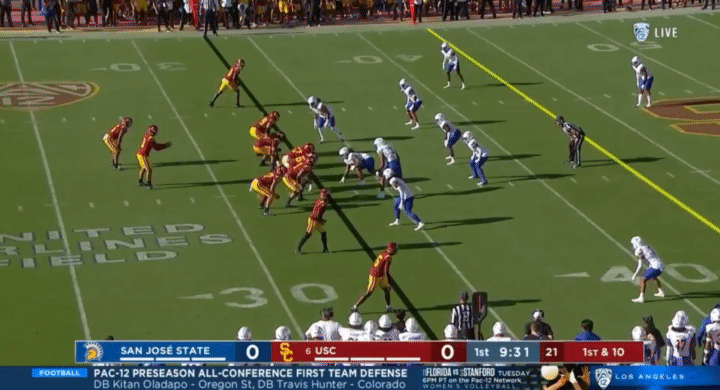
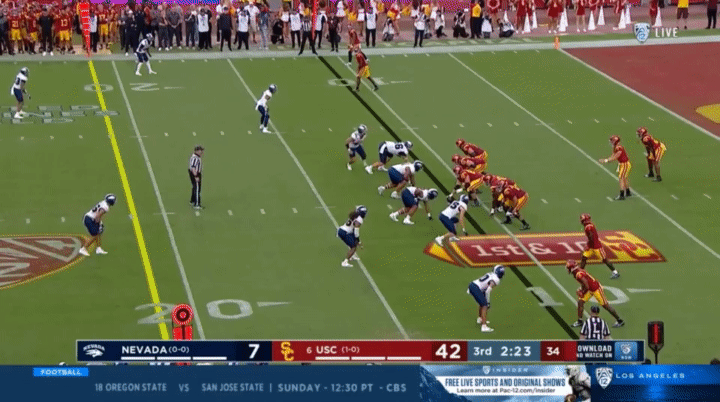
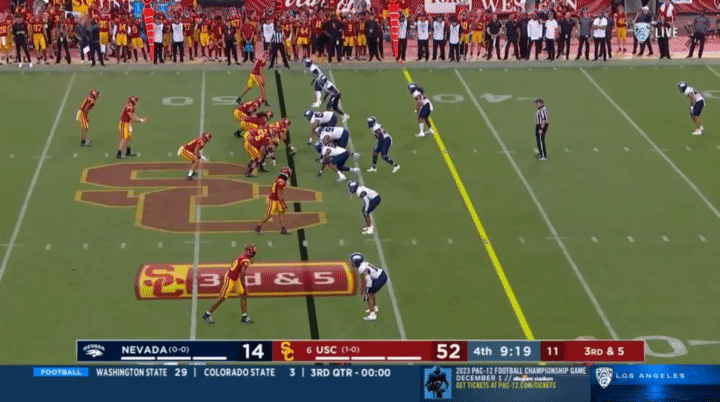
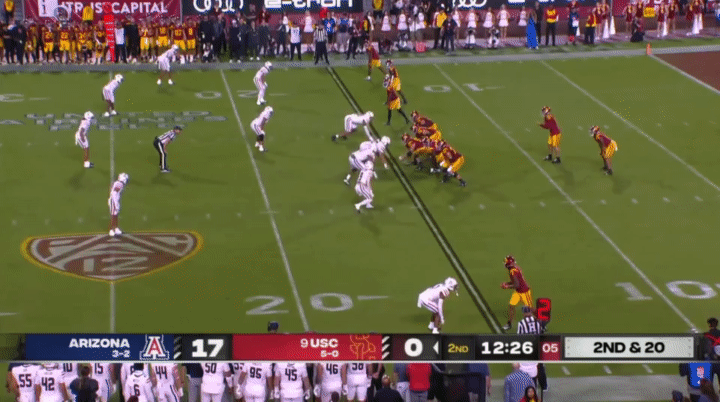
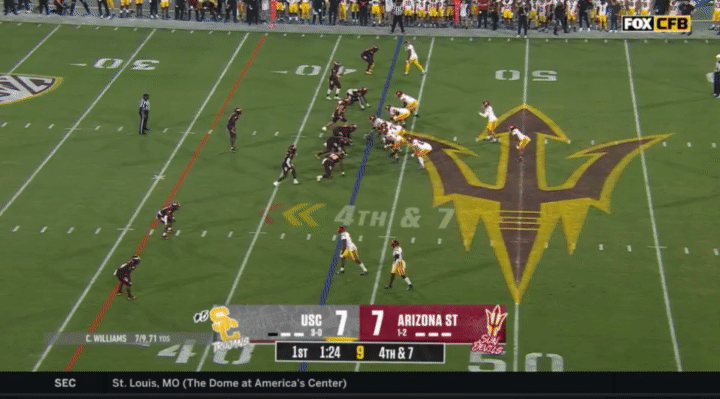
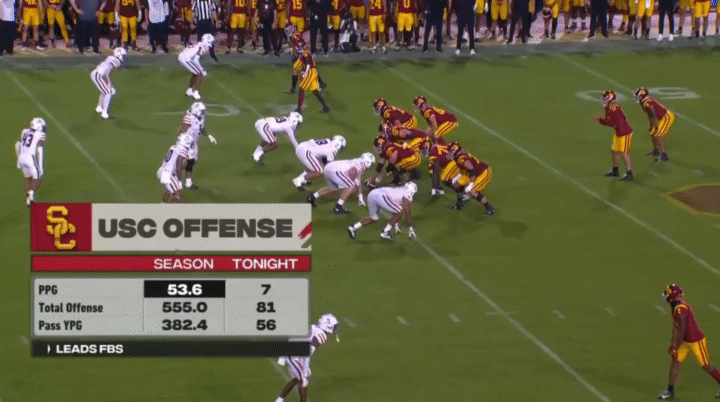

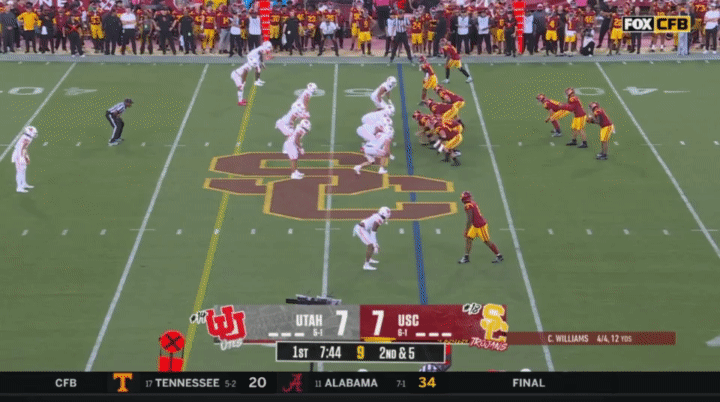
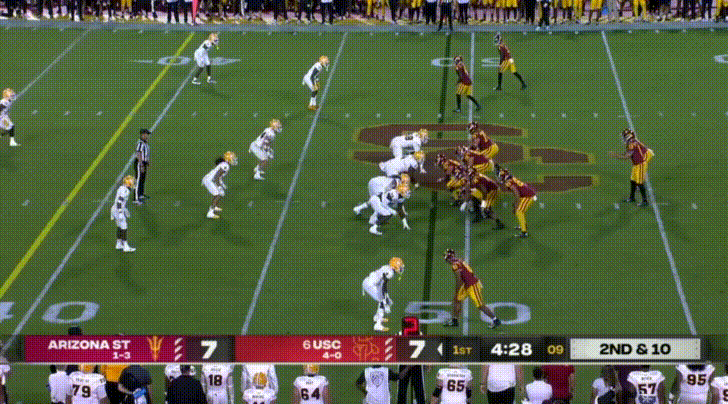
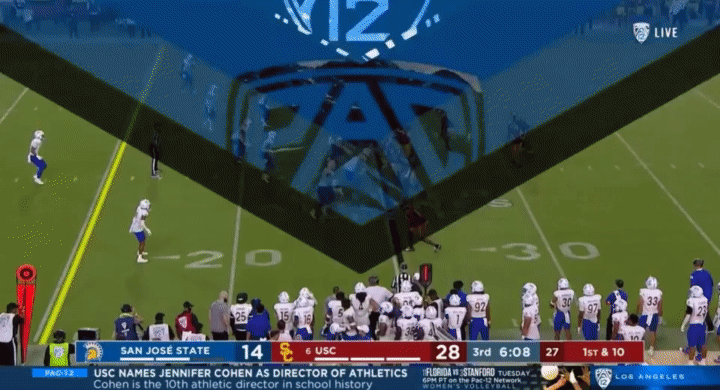
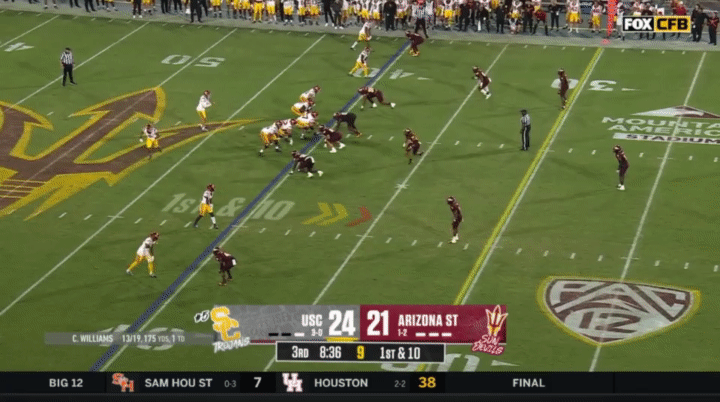
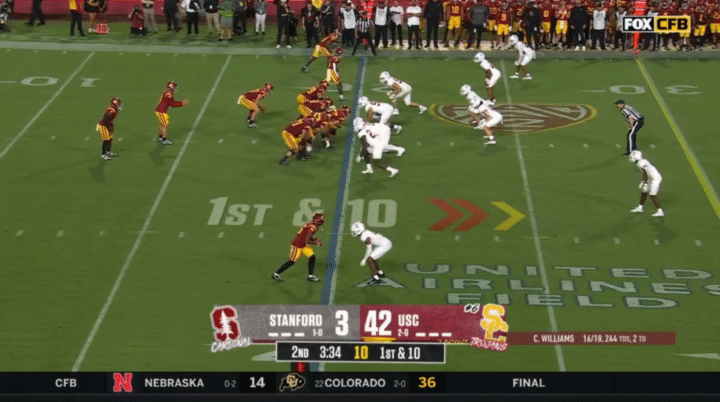
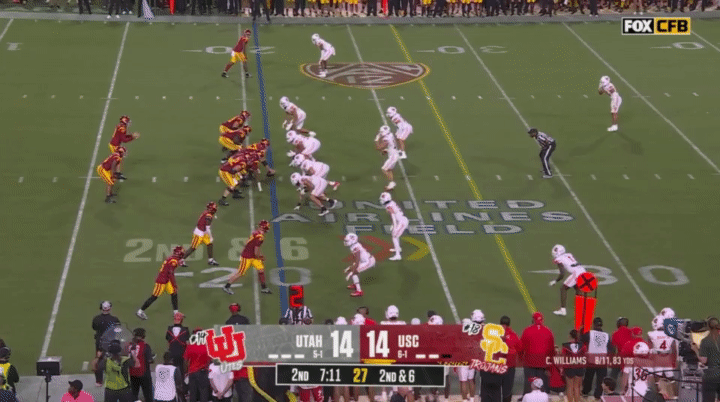
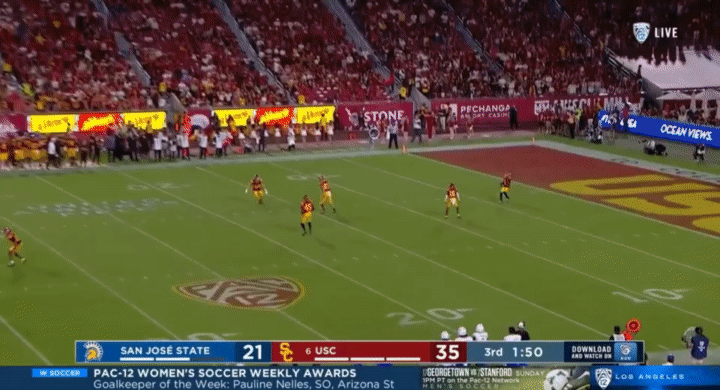
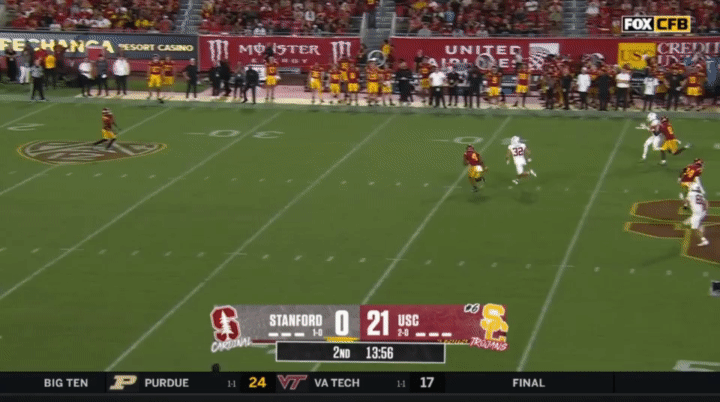
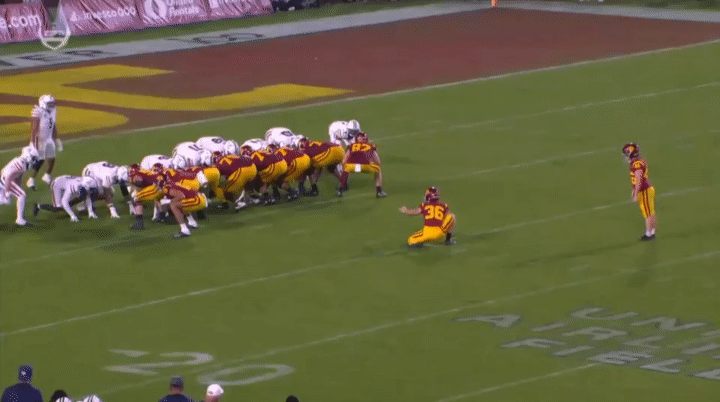
Caleb Williams is going to light this D up if Wilcox/Sirmon haven't fixed the lack of a pass rush.
0 sacks in 4 Pac-12 games. 0. Still not sure how that is possible.
Occurring to me this morning, in 2024+ will Cal wear the Joe Roth uniforms for home games against... Georgia Tech or Boston College? Or not wear them at all?